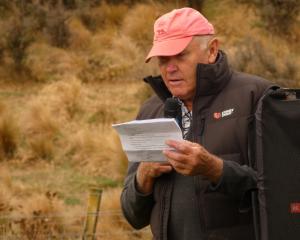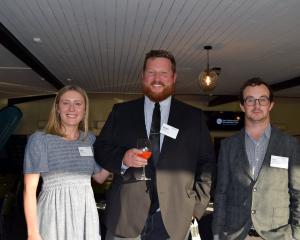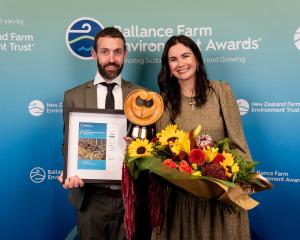
Members of the Post Quake Farming Project are used to overcoming challenges and recent rain was no exception, when a planned field day was diverted to the Waiau Hall, where more than 50 farmers attended.

The farm also has 300ha of forest, which has provided a much-needed income buffer following the quakes and the preceeding three years of drought.
Mr Pinckney and other speakers gave presentations inside the Waiau Hall, before the weather cleared sufficiently in the afternoon to allow a short farm visit.
''Forestry is a great option, as it doesn't take much time compared to running the farm. It's about the appropriate land use - the right tree in the right place,'' he said.
''It is also a way of dealing with ongoing weed incursion and land that is environmentally and financially marginal to farm livestock on.''
He and his wife were investigating further diversification to future-proof their farming operation, including sheep milking, production forestry, manuka honey and native planting, he said.
Forestry is one of the workstreams adopted by the Post Quake Farming Project as it looks to support farmers recovering from the quakes.
Project manager Michael Bennett said the timing was perfect for farmers to look at forestry when considering how best to use their land.
''It's a buffer against drought, price movements, market demand, climate change, increasing compliance and the odd earthquake.
''Income comes from the timber at harvest and also from registration in the New Zealand emissions trading scheme.
''MPI's One Billion Trees funding may also make it more accessible for some of our farmers now.''
Last week's event was the first of three forestry integration field days being hosted by the Post Quake Farming Project over the next few months.
The next field day will be held next Wednesday, at the Kekerengu Community Centre.
Four-wheel-drive tours are also being held on local farms for farmers to learn more about wilding pine challenges, improving productivity and biodiversity. The next tour is on April 30.
For more information like the Post Quake Farming page on Facebook or email postquakefarming@gmail.com.
-By David Hill















